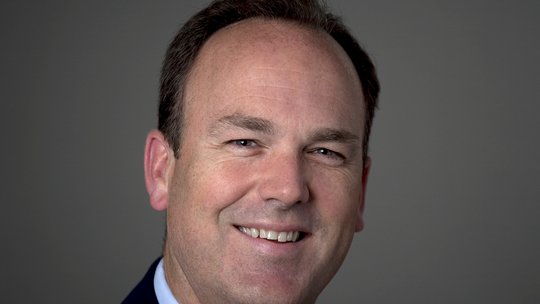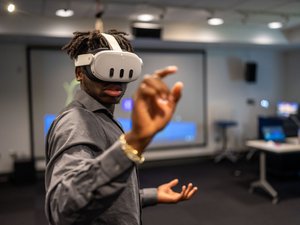
Kirkland-based wearable defibrillator company Kestra Medical Technologies wants to take the next leap after raising $196 million Wednesday.
The company launched commercially in 2022 and has hit its initial scale milestone, CEO Brian Webster said, and now Kestra will use the massive round to expand its commercial footprint. He added that the company has about 260 employees, including about half of whom are based in the Seattle area, and it wants to add about 60 to 70 employees over the next year.
Webster said Kestra had close to $300 million in equity funding before this round, and that money was to develop the product, get regulatory approval and manufacture its physical devices.
"It takes a long time to do a class 3 medical device," Webster said. "This is really the growth-stage investment."
Related coverage
Kestra has office space at Plaza Yarrow Bay in Kirkland. Although Webster said the company will likely expand its physical footprint as it grows its headcount, it has no immediate plans to do so and should be able to expand at its current location. Kestra's engineering, operations, finance and back-office roles are based in Kirkland; it has commercial roles all over the country.
Kestra was founded in 2014 by Bain Capital and leaders in the defibrillation industry. The company makes a wearable defibrillator that monitors patients' heart rhythms and automatically delivers a shock to patients' hearts if it detects an arrhythmia. The system will first warn patients, who can stop the shock if they choose.
The device fits under patients' clothes, and the system is machine washable. It comes with a monitor that patients can clip to a belt or carry over their shoulders. According to Kestra, health care providers have prescribed Kestra's technology to more than 10,000 patients.
Webster said Kestra will alert a 911 call center if the system gives a patient a shock. The call center will then call the patient and send first responders if nobody answers. Kestra has an app that collects heart data for patients and can send this data to health care professionals to help them monitor patients.
Webster has been Kestra's CEO since 2014. He also spent about 24 years at Physio-Control, a Redmond-based company made defibrillators and monitors and was acquired by Kalamazoo, Michigan-based Stryker in 2016 for $1.28 billion. Webster led both Kestra and Physio-Control from 2014 to 2016.
The latest funding round will also help Kestra continue research and development, Webster said, but he declined to specify what new products Kestra is considering.
"This is a great anchor product," Webster said. "Our objective would be to think about the typical patient journey for a cardiac patient as they first get diagnosed all the way through their cardiac rehabilitation and, ultimately, on to better health. There's a lot of different technologies those patients interact with, and we think we can play in a number of those."
For more stories like this one, sign up for Seattle Inno newsletters from the Puget Sound Business Journal and the American Inno network.








